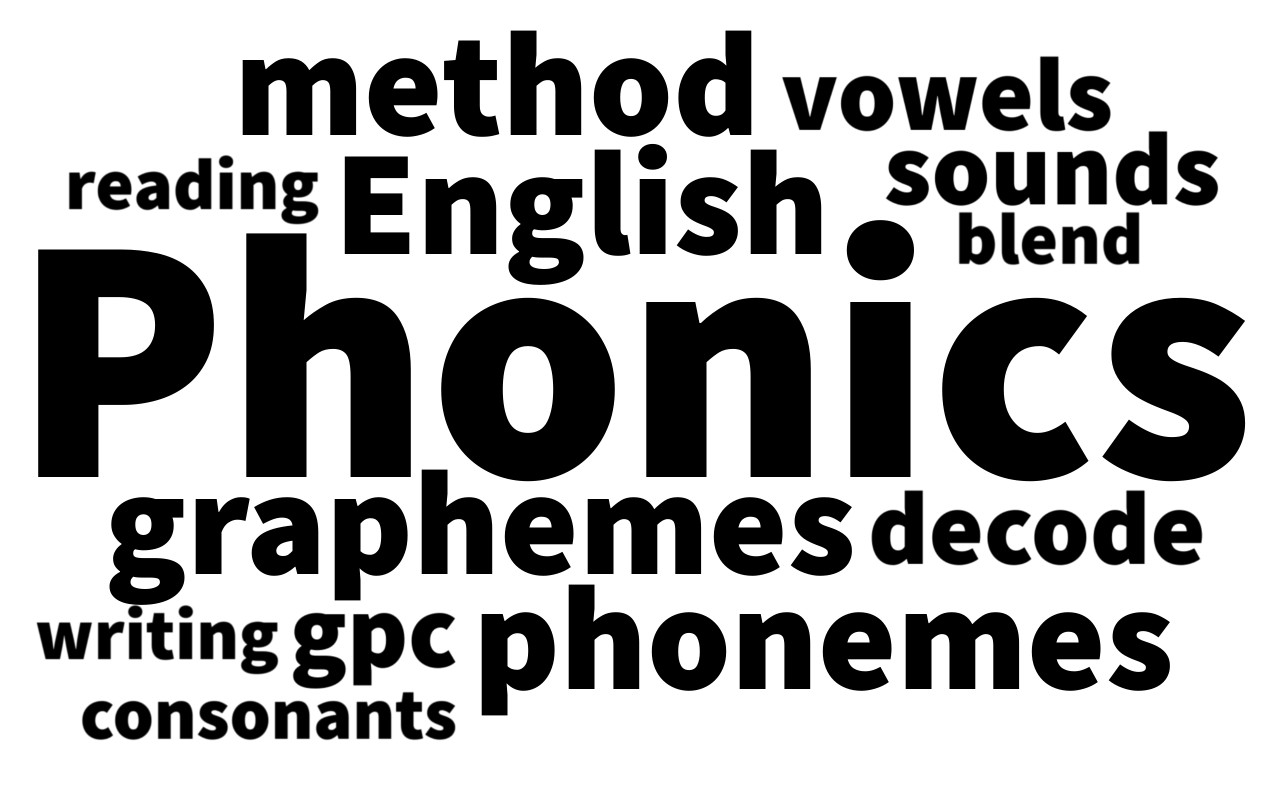What is phonics?
Phonics is a way of teaching reading and writing in English. The method systematically introduces the two kinds of building blocks of words: phonemes and graphemes. You also learn the relationship between these building blocks, called grapheme-phoneme correspondence.
Phonemes are the sounds that combine to form words. We therefore need to learn to hear these sounds, identify them and blend them (phonemic awareness). Graphemes, in contrast, are the ways of writing each phoneme. Since there are several ways of writing most sounds, learning to read and write English is notoriously challenging. For example, a_e (“bake”), ai (“aim”), eigh (“weigh”) and ay (“hooray”) are all ways of writing ā (long “ay”).
Why teach it?
Learning to read and write is not easy. But taking a sequential approach to introducing these building blocks and working with decodable texts makes it easier. That sequential approach is phonics. The Wikipedia article states that the goal of this method…
…is to enable beginning readers to decode new written words by sounding them out, or, in phonics terms, blending the sound-spelling patterns.
Most importantly, it differs from the “whole language” approach, which focuses on the correspondence between specific strings of letters and words. By the way, if you’re interested in learning more about this method (it’s history, etc.) the Wikipedia article is a good place to start. Detailed information about the phonics progression for the TAP ebook series is here.
